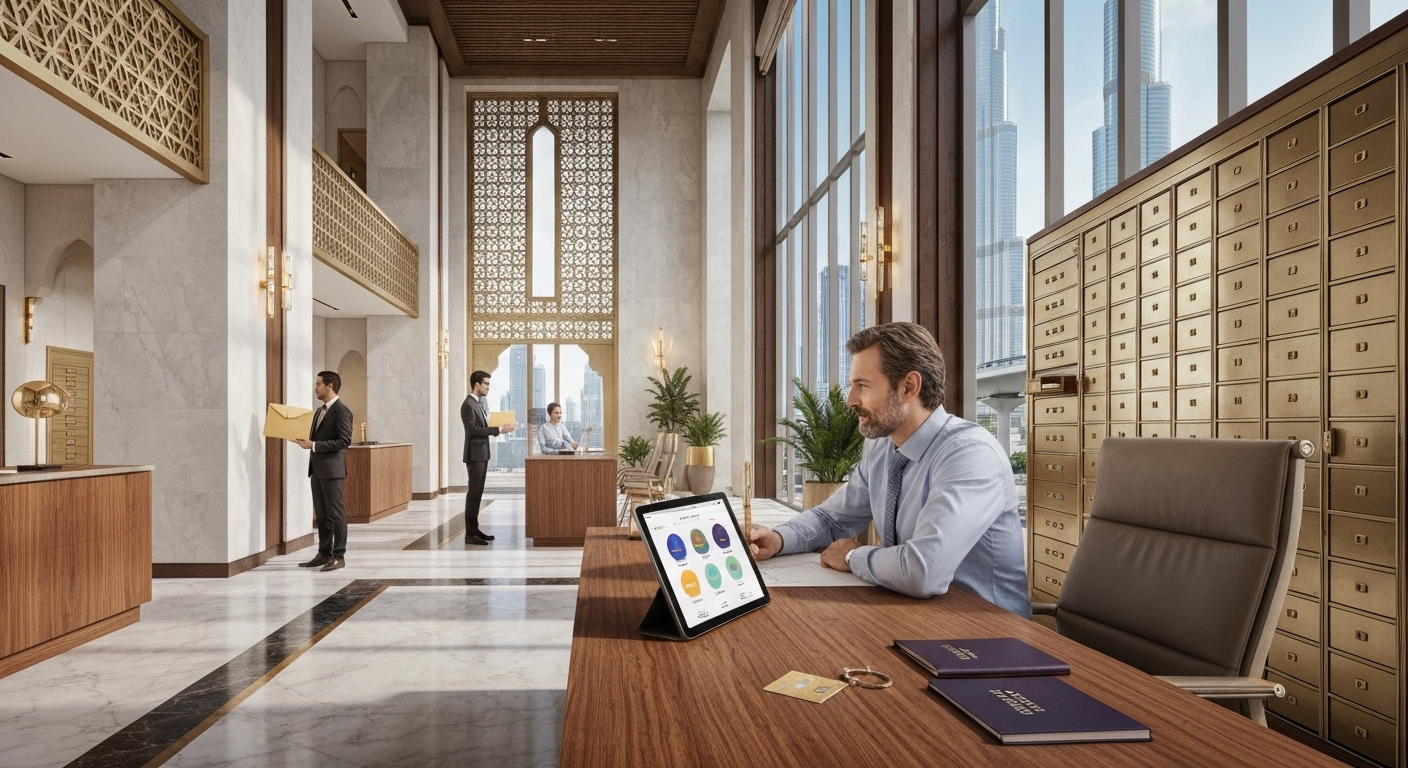Opening a bank account in Dubai as a non-resident property owner is a critical step for international investors and expats who want to manage their UAE real estate assets efficiently. This guide will answer all your questions on the process, documentation requirements, best bank choices, and how to maintain your account from abroad, helping you navigate the financial landscape of Dubai with confidence.
Why Open a Bank Account in Dubai as a Non-Resident Property Owner?
Owning property in Dubai offers significant advantages, from strong capital gains to long-term rental income. Opening a local bank account streamlines the management of income and expenses, making it easier to collect rent, pay service charges, settle utility bills, and facilitate property transactions in AED. The UAE’s investor-friendly reforms—including the Golden Visa and 100% property ownership for expats—continue to attract global investors and reinforce Dubai’s reputation as a high-value, safe destination for property ownership.
In addition to simplifying daily transactions, a UAE bank account supports compliance with local regulations and enables seamless financial planning for property maintenance, tax optimization, and future investments. It’s increasingly common for Dubai’s non-resident property owners to leverage these advantages, especially as mortgage rates and entry points have become more flexible.
Understanding Your Options: Types of Bank Accounts for Non-Resident Property Owners
Non-residents in Dubai principally have access to two types of bank accounts: savings accounts and current accounts. Most major UAE banks offer specialized non-resident savings accounts, which support multi-currency holdings (including AED, USD, and EUR) and online banking features suitable for managing income and expenses from overseas.
Current accounts, while more limited for non-residents, are sometimes available, subject to meeting specific minimum balance requirements or providing substantial property investment proof. These accounts often include cheque book facilities, debit cards, and local remittance support, making them practical for frequent transactions.
Essential Documents Required to Open Your Dubai Bank Account
The document checklist for non-resident property owners opening a Dubai bank account typically includes:
- Valid passport with UAE entry stamp
- Proof of property ownership (such as the title deed or Sale & Purchase Agreement)
- Recent utility bill or bank statement as proof of overseas address
- Completed bank application form
- Bank reference letter from your home country (occasionally requested)
- Employment or income proof (depending on the bank’s policies)
It’s always smart to verify requirements with your chosen bank, as criteria may change or vary according to your nationality and property value.
Step-by-Step Guide: The Bank Account Opening Process in Dubai
Example: Opening a Non-Resident Savings Account
- Select a Bank: Compare UAE banks such as Emirates NBD, Mashreq, ADCB, and HSBC based on features, minimum balances, and online service access.
- Collect Your Documents: Gather the items listed above, ensuring originals are handy for in-person verification.
- Application Submission: Submit your application in person at a UAE branch or via some banks’ online portals designed for international clients.
- Initial Approval & KYC: The bank conducts mandatory “Know Your Customer” (KYC) due diligence, which may include a brief interview or video call.
- Account Activation: On approval, the bank will issue your account details, access credentials, and deliver your debit card (sometimes via courier).
- Fund Your Account: Many banks require a minimum initial deposit, typically ranging from AED 5,000 to 25,000, depending on the account type and bank.
Choosing the Right Bank: Key Factors and Top Recommendations for Non-Residents
When choosing your bank, consider the following:
- Minimum balance and fees: Some banks impose monthly charges if the balance falls below a set limit.
- Multi-currency options: Ideal for international investors handling foreign funds.
- Digital banking: Robust online platforms facilitate global account management.
- Branch network and English support: Convenient for non-Arabic speakers and overseas account holders.
Top UAE banks for non-resident property owners include Emirates NBD, Mashreq Bank, and HSBC Middle East, all renowned for their tailored expat offerings, secure digital banking, and responsive foreign investor services.
Navigating Challenges: Common Hurdles and Solutions for Non-Resident Account Holders
Some common obstacles include:
- Stringent documentation and KYC processes
- Minimum balance thresholds that trigger monthly charges
- Occasional delays in account approval for politically sensitive nationalities
Solutions involve thorough document preparation, maintaining the required balance, and proactively communicating with your relationship manager. Online banking and mobile apps also help resolve most service or access issues remotely.
Managing Your Dubai Bank Account from Abroad: Tips and Best Practices
- Use secure online and mobile banking platforms for real-time monitoring.
- Set up automatic payments for property-related expenses.
- Stay updated on regulatory changes affecting non-resident accounts.
- Maintain regular communication with your bank representative for any compliance updates.
In conclusion, opening a bank account in Dubai as a non-resident property owner provides security, flexibility, and financial control for global investors. With careful planning and the right partner bank, managing your Dubai assets from overseas is both practical and rewarding. For more property investment guidance, contact Danube Properties to learn more.




